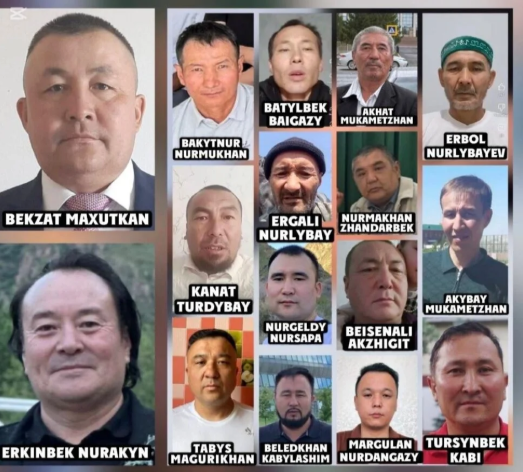Human rights groups call on UK delegation to pressure Saudi Arabia over NEOM land grab
- info775148
- 15. 5. 2024
- Minut čtení: 2
May 15, 2024

Credits @FFHR.CZ
Human rights groups have urged a delegation of executives and representatives from the United Kingdom to pressure Saudi Arabia’s leadership over revelations that Saudi forces were ordered to kill to make space for a futuristic megacity in the desert.
Earlier this month, the BBC reported that a now-exiled former Saudi intelligence officer, Colonel Rabih Alenezi, revealed that he and other Saudi officers were ordered to evict tribal villagers from their historic homelands in the north-west of the Kingdom, by force and with lethal means, if necessary.
Those tactics were employed in order to make and expand space for The Line, a key part of Saudi Arabia’s project named NEOM – a futuristic megacity and set of architectural achievements in the wilderness of the Kingdom’s north-western Tabuk province, made possible by the Gulf State’s public investment fund (PIF) and foreign investment.
As a result of that drive, numerous individuals from the Howeitat tribe have been jailed for rejecting displacement, and at least one man was killed by Saudi security forces back in 2020 during the removal operations for refusing an eviction order.
Four years later, a launch event titled “Great Futures” is currently taking place in the Saudi capital, Riyadh – hosted by the UK – to boost the promotion of partnerships in the trade, tourism and education sectors, as well as significantly promoting NEOM and The Line.
Dozens of British figures and executives from a myriad of fields are scheduled as speakers, making it a landmark event in contemporary UK-Saudi relations.
Upon its launch, human rights groups have called on the delegation from the UK to speak out and put pressure on Saudi officials and the leadership regarding the controversial tactics employed to make way for NEOM.
According to Amnesty International, the “reality behind such futuristic projects is the brutal repression of citizens and residents”, with the organisation’s Middle East Researcher, Dana Ahmed, stating that “Any business that knowingly contributes to human rights harms is in clear violation of international law.”
The UK-based human rights group, ALQST, also expressed its concerns, lamenting that London is “increasingly willing to turn a blind eye to the catalogue of Saudi abuses on the ground”. Its deputy director, Josh Cooper, also posed the possibility of holding the Kingdom’s authorities to account through the use of leverage.
“Imagine if companies working on Neom made their involvement conditional on the release of local residents arrested for protesting forced eviction?” he asked. “Or if university chancellors withheld Saudi partnerships until detained University of Leeds PhD student, Salma Al-Shehab, was freed? Such steps would have a positive bearing.”
In response to the groups’ calls for pressure, the British government has insisted on the necessity for strong and prosperous relations with Riyadh, with a spokesperson reportedly stating that the UK “has vital national security and economic interests in maintaining and developing our relationship with Saudi Arabia but no aspect of our relationship prevents us from speaking frankly about human rights.” The spokesperson added that “UK ministers regularly raise human rights concerns with the Saudi authorities where necessary.”
Source: middleeastmonitor.com









Komentáře